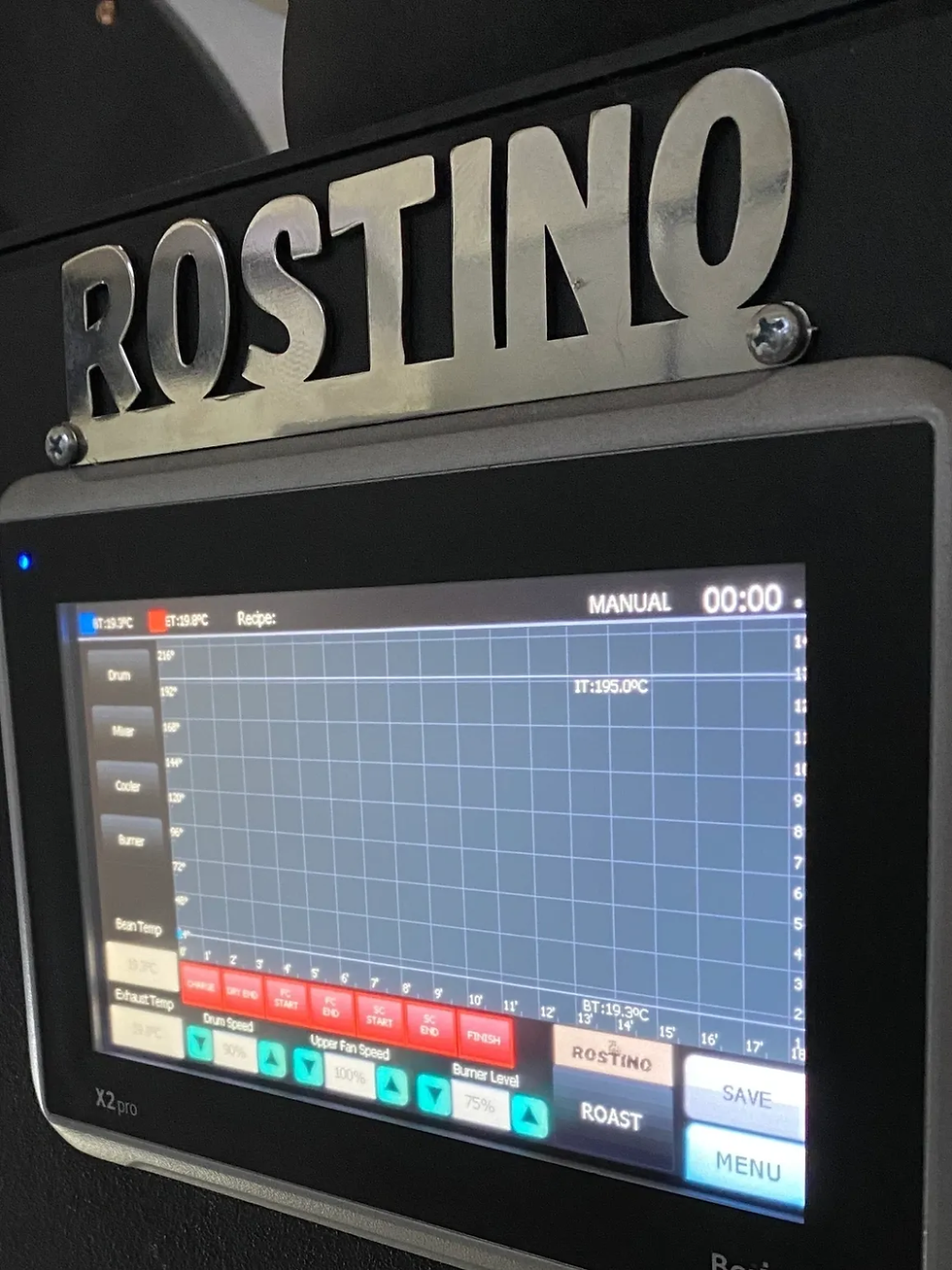Which coffee roasting is better ? fast or slow ? #coffee roasting machine
- Roast Master
- Jul 15, 2023
- 2 min read
Updated: Oct 16, 2023

Get offer for advanced coffee roasting machine over email or whatsapp :
+905383607501
The choice between fast and slow coffee roasting depends on various factors, including personal preference, desired flavor profiles, and the specific characteristics of the coffee beans. Both approaches have their merits, and different roasters may have their preferences based on the desired outcome. Here's a breakdown of the advantages and considerations for each method:
Fast Roasting:
#coffee roasting machine
Time Efficiency: Fast roasting techniques typically result in shorter roast times, which can be beneficial for commercial roasters or those aiming for high production volumes.
Retention of Acidity: Faster roasts often preserve more of the coffee's inherent acidity, resulting in brighter and livelier flavors in the cup.
Retention of Fragrance: Quick roasting can help retain more of the coffee's aromatic qualities, providing a vibrant and aromatic sensory experience.
Considerations for Fast Roasting:
Limited Development: Fast roasting may limit the development of certain flavor characteristics, leading to a potentially less complex or nuanced cup.
Consistency Challenges: Rapid temperature changes and shorter roasting times can make it more challenging to achieve consistent results across different batches.
Potential for Underdevelopment: If not closely monitored, fast roasting runs the risk of underdeveloped flavors, leading to grassy or raw-tasting coffee.
Slow Roasting:
Enhanced Development: Slow roasting allows for more prolonged development stages, which can contribute to greater complexity, body, and sweetness in the cup.
Balanced Flavors: Longer roast times often result in a well-rounded flavor profile, with a harmonious balance between acidity, sweetness, and body.
Artisanal Approach: Slow roasting is often associated with specialty or artisanal coffee, emphasizing meticulous craftsmanship and attention to detail.
Considerations for Slow Roasting:
Increased Roasting Time: Slow roasting generally requires longer roast times, which can be less practical for high-volume commercial operations.
Reduced Acidity: Longer roast times tend to decrease the acidity in coffee, which can be desirable for those seeking a mellower or more balanced flavor profile.
Flavor Intensity: Slower roasts may yield deeper and more developed flavors, which could potentially overshadow the nuanced characteristics of certain coffee beans.
Ultimately, the "better" approach depends on your preferences and the coffee beans you're working with. It's worth experimenting with both fast and slow roasting techniques to understand how they affect the flavor profiles of different coffees. Experienced roasters often fine-tune their techniques to strike the right balance between speed and development to achieve the desired flavors and aromas in their coffee.
Get offer for advanced coffee roasting machine over email or whatsapp :
+905383607501







Comments